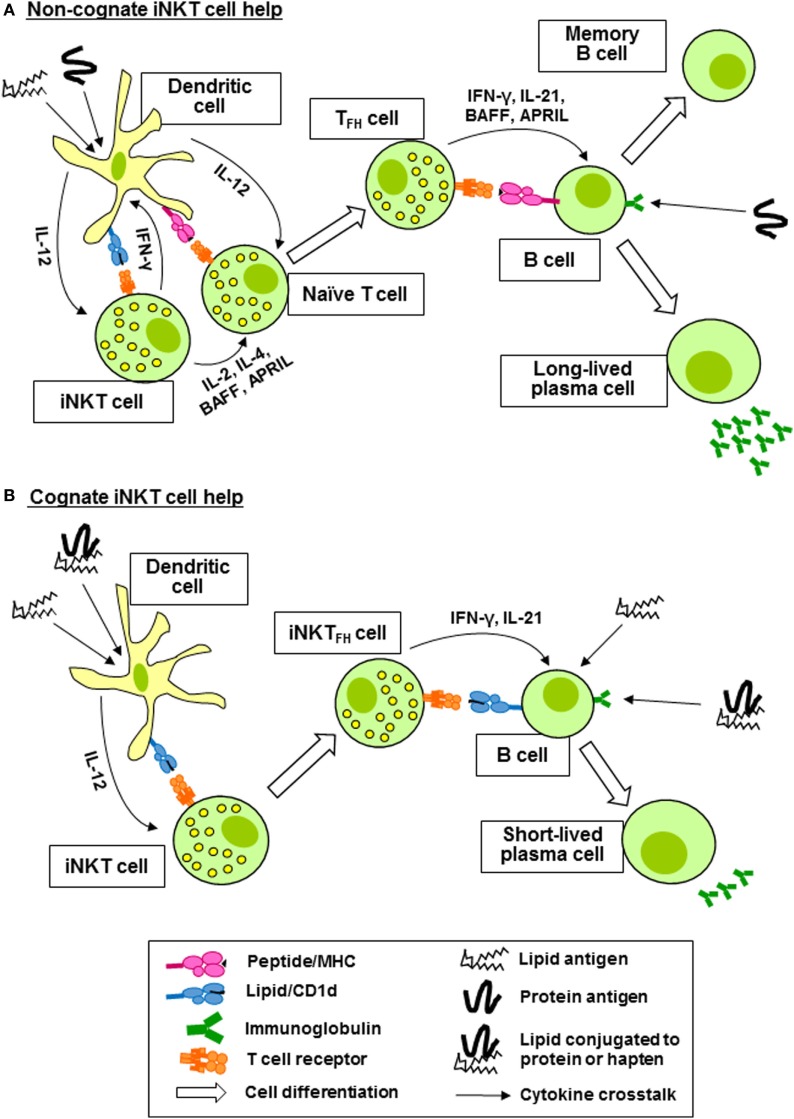Figure 2.
Invariant natural killer T (iNKT) cells provide non-cognate and cognate help for antigen-specific B cells. (A) Coadministration of protein antigen and an iNKT cell ligand, such as α-galactosylceramide (lipid antigen) results in internalization by a dendritic cell (DC) and simultaneous presentation of peptide fragments of the protein antigen on major histocompatibility complex (MHC) class II to a naïve CD4+ T cell and of the lipid antigen on CD1d to iNKT cells. IFN-γ production by the iNKT cell reciprocally promotes MHC class II antigen presentation and expression of CD40 by the DC, whereas IL-2, IL-4, B cell activation factor (BAFF), and a proliferation-inducing ligand (APRIL) production promotes maturation of the peptide-specific CD4+ T cell into a follicular helper T (TFH) cell. The TFH cell then provides antigen-specific help for the proliferation of B cells in germinal centers, affinity maturation, antibody class switching, and the generation of long-lived antibody-secreting plasma cells and memory B cells. (B) iNKT cells recognizing lipid antigens presented by DC differentiate into follicular helper invariant natural killer T (iNKTFH) cells capable of activating B cells specific for lipid antigens or proteins or haptens conjugated to the lipid antigens. B cell activation is mediated by CD40 and CD80/86 ligation by the iNKTFH cells and the production of IL-21 and IFN-γ. Cognate B cell help from iNKT cells results in plasmablast expansion, germinal center formation, modest affinity maturation, and primary class switched antibody production.

